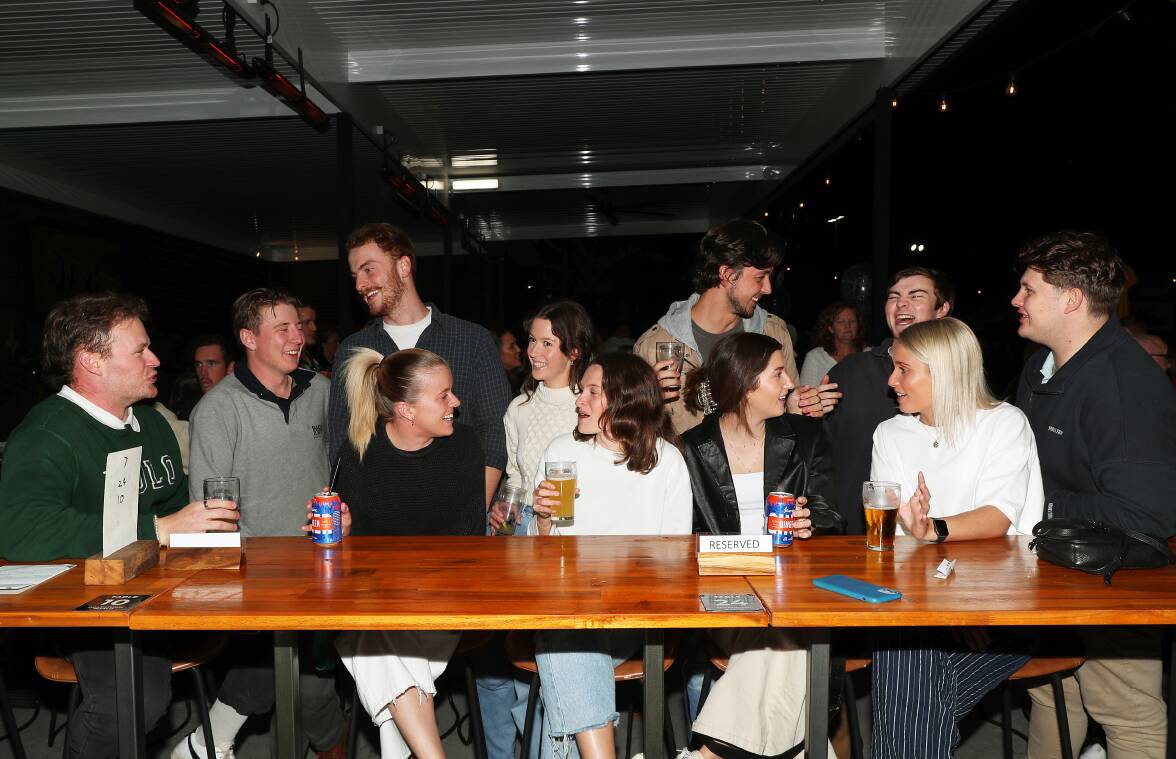
It's a Friday evening at Adamstown Bowling Club. In the beer garden a musician plays cover songs.
I'm here to meet a group of Newcastle Gen Zs, or Zoomers, who have agreed to talk to me about the way they see the world.
My friend Sophie Jaggers is the managing editor of the University of Newcastle's student media club, Yak Media.
Originally from Port Macquarie, she agreed to help out a fellow journalist in my quest to write a story about the next generation.
Jaggers has a big, tight-knit group of friends who are happy to talk to a clueless, ageing Millennial.
"I don't know if Gen Z has as much of a bad rep as Millennials spending all their money on avocados and toast," says 20-year-old Ciara Smith.
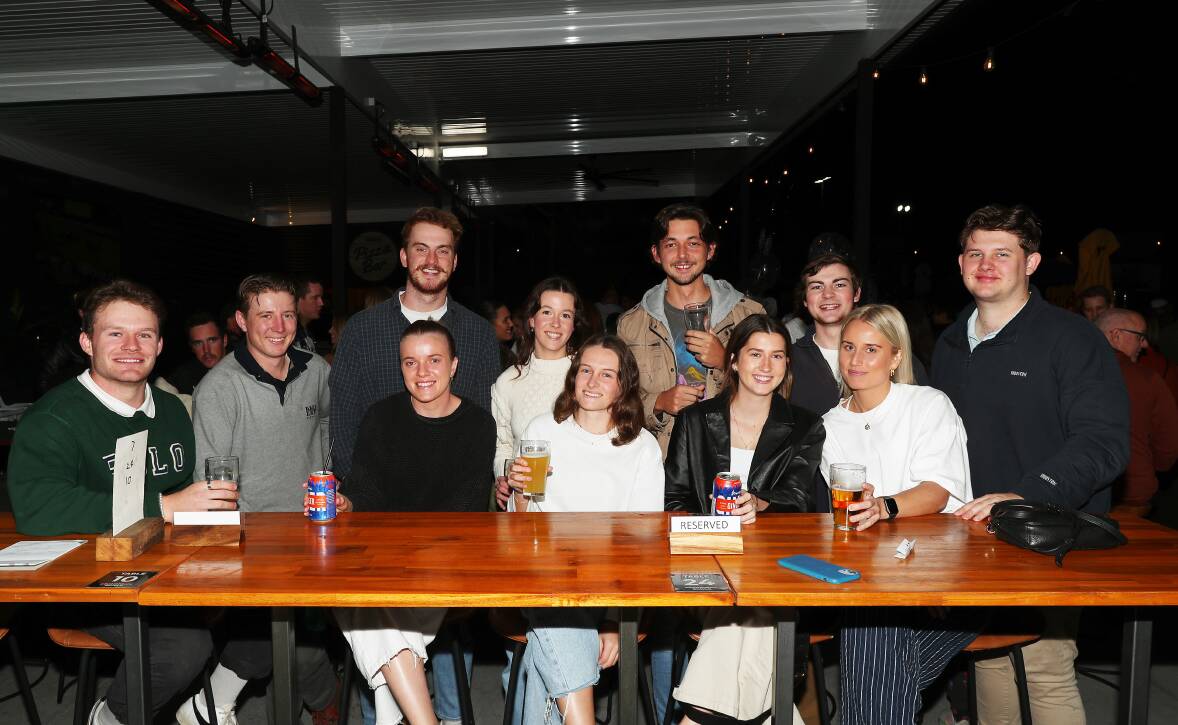
"Older people see Gen Z as anxious climate warriors."
Smith is studying medicine and, true to her generalisation, thinks the world's most pressing issue is climate change.
More and more rock up, we're up to 17. I buy a bottle rose for whoever wants some, and they're buying their own drinks too.
I learn this group of friends are particularly close as they all lived in the same residence on campus, Evatt House. Many of them were in the same block, mostly during COVID.
"This group of people chose to live on campus," says Emma Jukes, a 21-year-old environmental science student.
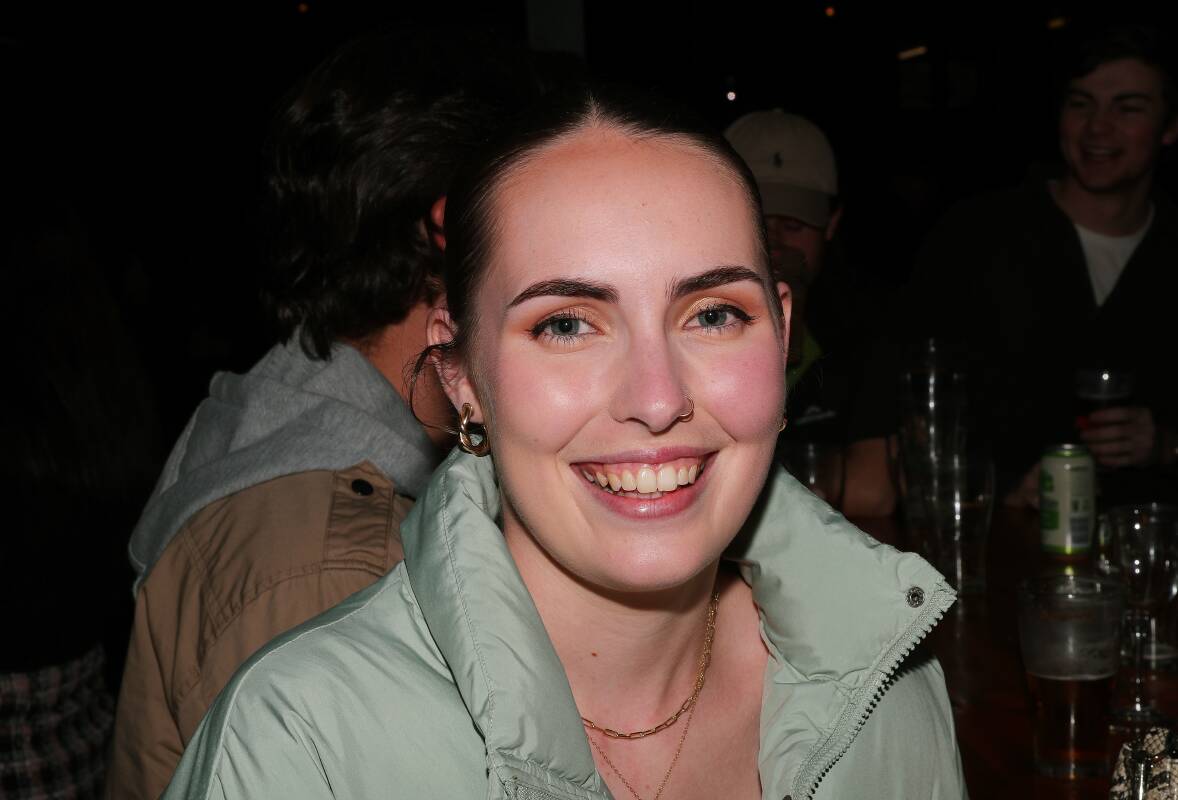
"Everyone has a shared experience; they're ready to jump into things and ready to meet new people.
"This group, they go camping every year. The people who decide to live on campus, they're ready to have an open mind, meet people and balance it all out."
Jukes says everyone in the group that's here tonight are attending university for the experience, not just to learn.
Jukes, Jaggers and Smith all live together in a share house in New Lambton. Jaggers and Smith are in relationships - Smith's boyfriend lives in Sydney and Jaggers' partner, Barry Lane, is in Newcastle and he's here tonight with her.
Why Newcastle?
None of these students grew up in Newcastle, they're either from country towns or Sydney.
Jukes is originally from Sydney and was excited to move to Newcastle and get out of her "Northern Beaches bubble".
Tom Rindo, 22, is originally from Tamworth. He says everyone in Tamworth either attends Armidale or Newcastle for university. For him, Armidale seemed like a more boring version of Tamworth.
Rindo decided to attend Newcastle as it was better suited to his architecture degree. Sydney was too expensive and he didn't have the marks for Melbourne.
He likes the city but doesn't like the traffic compared with Tamworth.
Lachie Miller is 21 and from the small country town of West Wyalong in the Riverina. He came here to study business and commerce.
"Coming from such a small town, Newcastle seemed daunting, but it's really not; it's just like a big small town," Miller says.
"I like that it's both busy and quiet at the same time, not to hectic, not to boring. I don't know if there's anything to dislike."
Not everyone plans to stay in Newcastle after they graduate, but Miller is open to the idea.
The important issues
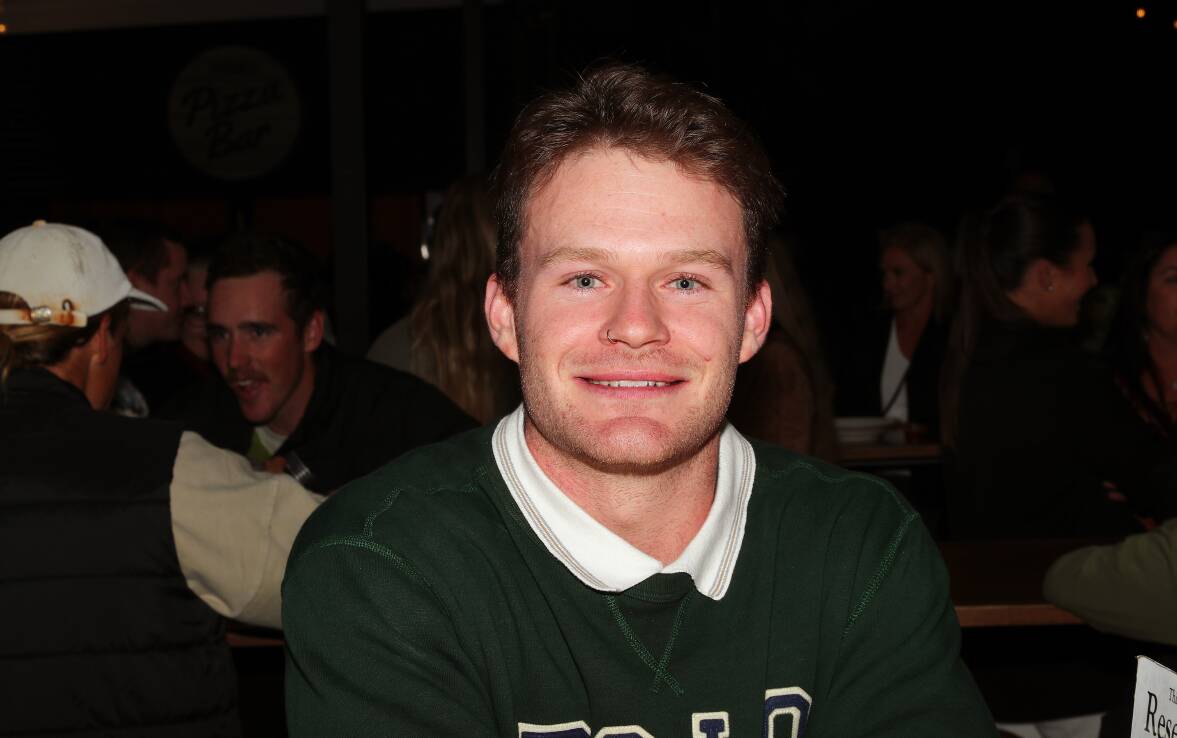
Miller tells me the most pressing issue worldwide in the short-term is discrimination against minority groups.
He says long-term, the big issue is climate change, a reoccurring concern.
When I ask him and the others what the most pressing issue locally is, almost everyone talks about the inevitable transition from coal to renewable energy.
An answer I did not expect came from Rindo, a big V8 Supercars fan.
"[The biggest local issue is] people trying to cancel the V8s in Newcastle, because it's so much fun," Rindo says.
"We finally got it back after not having it. The biggest issue is people trying to make this the biggest issue."
There's lots of laughing, but we get serious as well. Lane mentions he lost friends when he was still in high school.
People speak with genuine concern and fear about the ever increasing cost of living and ever being able to own a home, at least in this town.
Gen Z in bed

I'm also curious about friendships, love and parties, all those things that help young people come of age.
I've been reading articles about how today's young have been having less sex and drinking less alcohol.
Everyone seems a bit reluctant to talk sex on the record, but I get a few opinions as the night goes on.
"I think when you weren't going out [during lockdowns] it's not like you're meeting someone in a pub," Jukes says, when I ask about modern hookup culture.
"You're already friends with them, it's less common with a complete stranger. People who knew each other better were pairing up."
Jaggers got together with Lane after they lived together in the same campus housing. The two became an official couple at the end of 2020.
She and Smith both feel that because they've been in relationships for years now, they can't really comment on the shifting sex lives of young people.
Rindo has been in a relationship for almost a year, and he reckons there's not much truth to the idea that young people are having less sex.
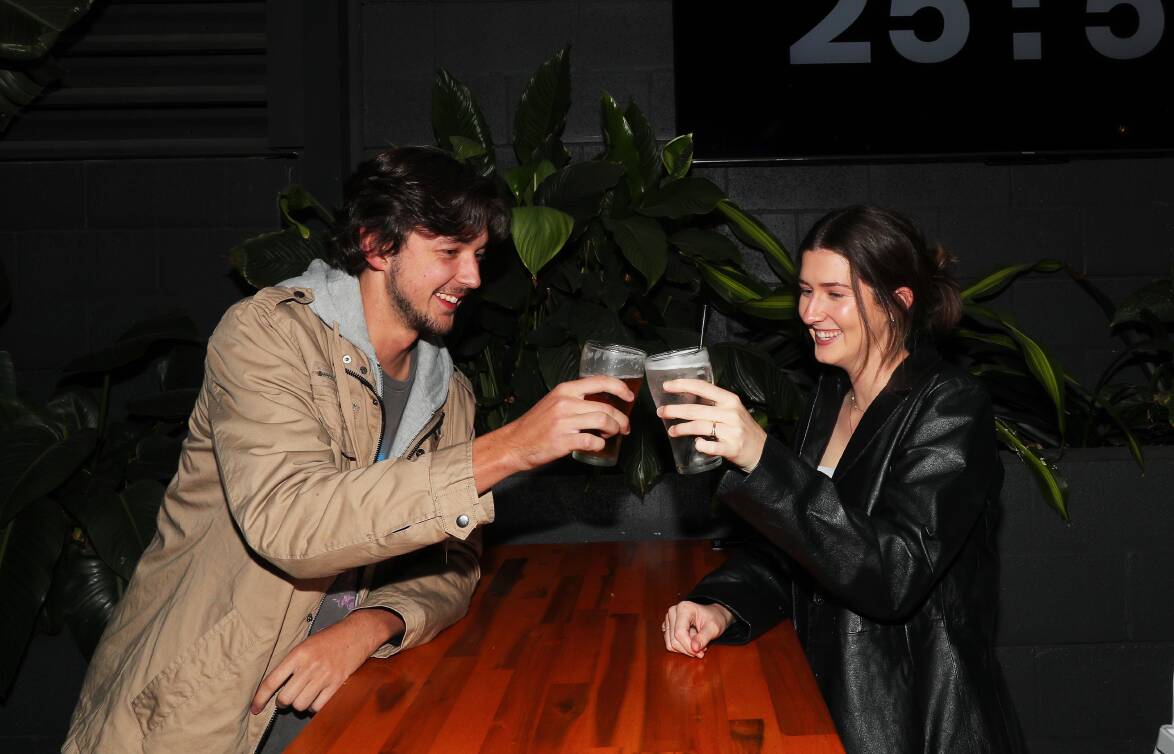
"I think everyone is still having fun," he says. "During COVID, yes because everyone was locked in, but then when it ended they were like rabbits.
"Gates are open. Let's go for it."
Making babies
The topic of having children regularly comes up during the night. Almost everyone at the table hopes to own a home and to start a family by their late 20s and early 30s.
Mackenzie Bain, 22, of Wodonga, feels that due to her health degree she's more aware of the complications that come with pregnancy as you get older.
She would love to be a mum one day.
Jaggers thinks about becoming a parent and how factors like climate change add to the ethics of bringing a child into the world. Ultimately she's decided she too would like to become a mother.
"I just don't plan, whatever will be will be," says 22-year-old Sophie Reid.
Reid is an outlier in that she currently has no desire to own a house and would rather put that money towards travelling, at least for the time being.
That being said, she is considering freezing her eggs.
Reid, Bain and Jaggers agree that because of their gender, the decision to have children holds much more weight in their lives.
It would be different if they were men.
Toast your 20s
As the night kicks on everyone continues to drink, and the conversation gets looser.
I buy another bottle of red this time (both bottles are under $30) and many are drinking cans of ginger beer.
We discuss the drinking culture of young people.
Rindo's family is Italian, so he grew up seeing his family drink; it is very much a normal part of his life.
For 21-year-old Angus Walsh, from Inverell, in central-north NSW, he believes it depends on where people are from as to whether or not they're drinking less.
His friends are all tradies, and two blokes can go through a carton a night.
"I feel like us Aussies saying we don't drink much is still a lot," Bain says.
Then again she's noticed a night club in Wodonga has started charging entry fees because people aren't buying drinks.
She also believes the rise of fitness influencers are normalising drinking less.
Some people point out that in this economy you might get more bang for their buck with drugs over alcohol. A cap costs $20, as much as a cocktail.
Talking about my generation
Jaggers and all her friends are aware of Gen Z stereotypes.
"I think a lot of older people sell the impact that we can have short," Miller says.
"A lot of people write off young people and consider their opinions invalid. As a generation, as a whole, we're looked down upon.
"There's no truth to that at all. It's a generational shift between social and political ideals."
Jaggers knows some people think Gen Z come across as bratty, but in reality, she thinks her generation is quite adaptable.
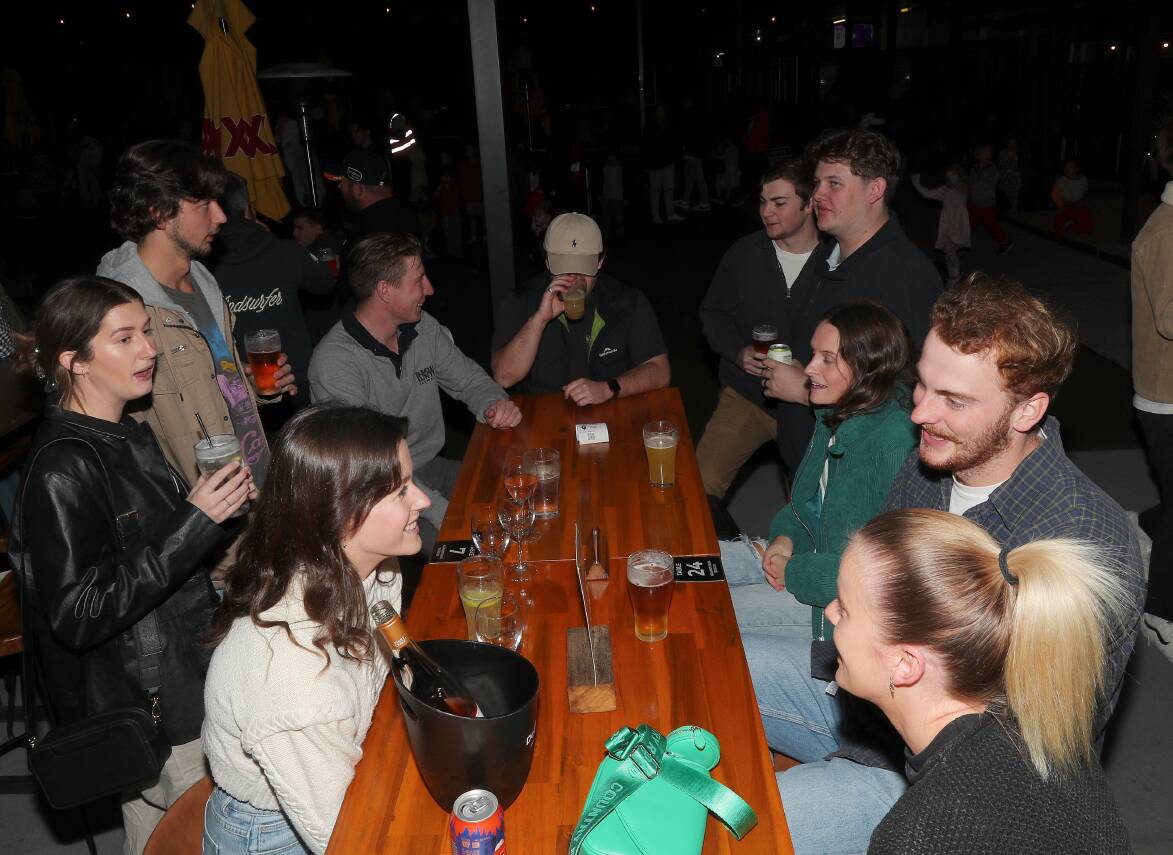
"Gen Z is often perceived as entitled, disrespectful, lazy, irrationally-panicked about the climate, and I don't think there's much truth to that," Jaggers says.
"With any generation, not all Boomers are disrespectful and grumpy, shout out to my grandparents," she says.
"A lot of young people are less entitled, as the expectations in their lives were shifted. What happened [in the pandemic] was not what they thought was going to happen."
Jaggers believes Gen Zs have come into adulthood realising they're not entitled to any sort of experience.
"You never know what's going to happen in the world becoming more and more unstable," she says. "We're not entitled to anything in particular.
"Also with things shifting and changing and not having any permanence, that does make my generation more confident to assert themselves and the conditions that they accept in the workplace, and that's against what was the traditional employee/employer relationship."
We discuss all kinds of random things, bow hunting, kangaroo meat, going abroad, running for fun.
I would like to go deeper with them all but with a big crowd in a loud club, there are limits.
I feel like they are happy to answer my questions, but they are treading cautiously, aware of how they might be perceived by an audience who has preconceived notions about them and might one day soon be hiring them.
I hang with them until 8.30pm, observing them making plans to go to their next location.
First they'll head to 5 Sawyers on Darby Street (they have a drink special) and then on to the Hotel Delany where they all can have a dance.
The future might be more uncertain than ever, but a night out with good friends never gets old.







